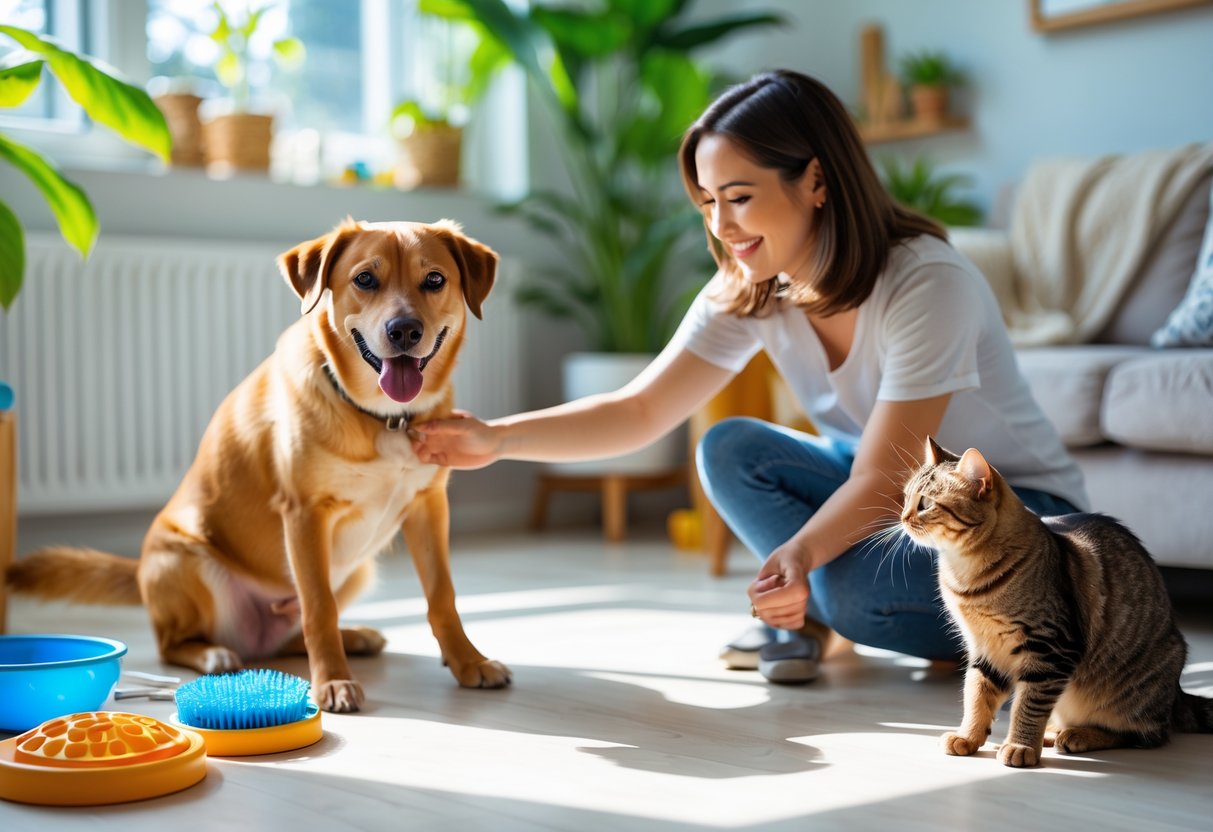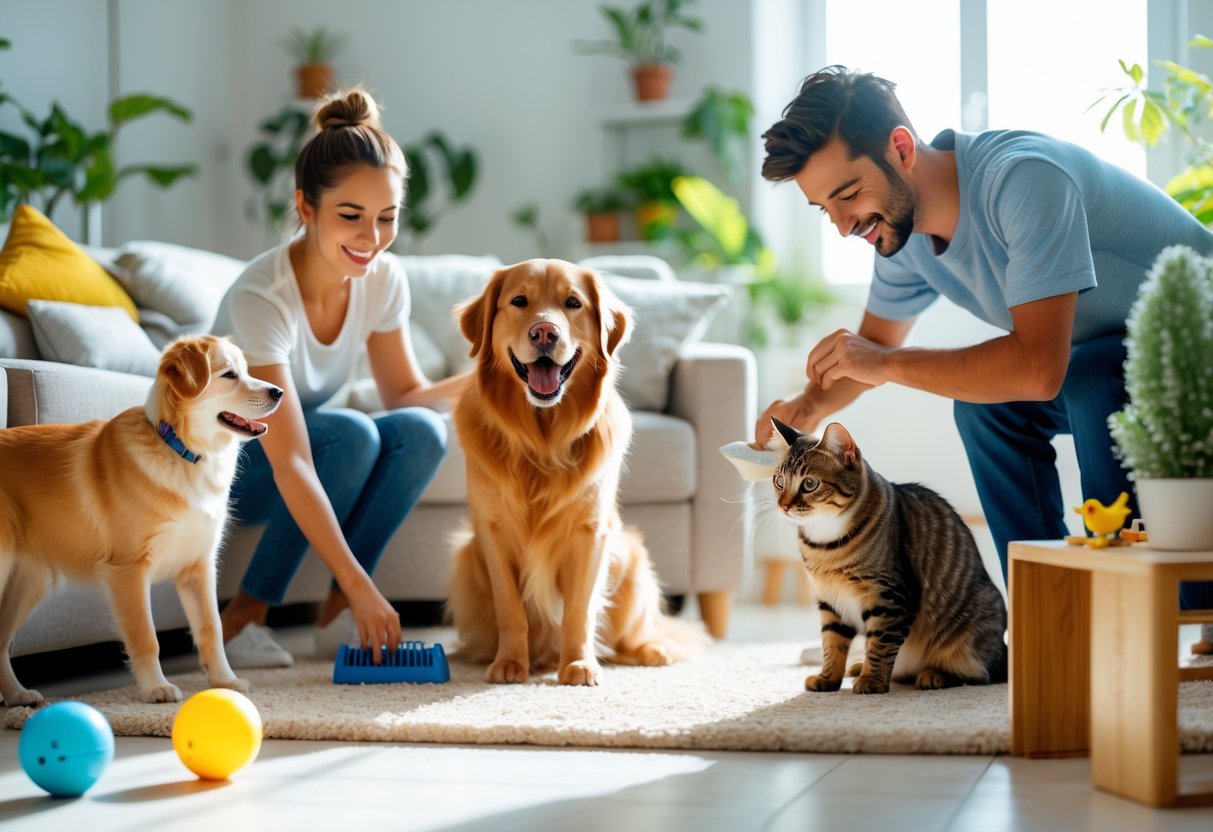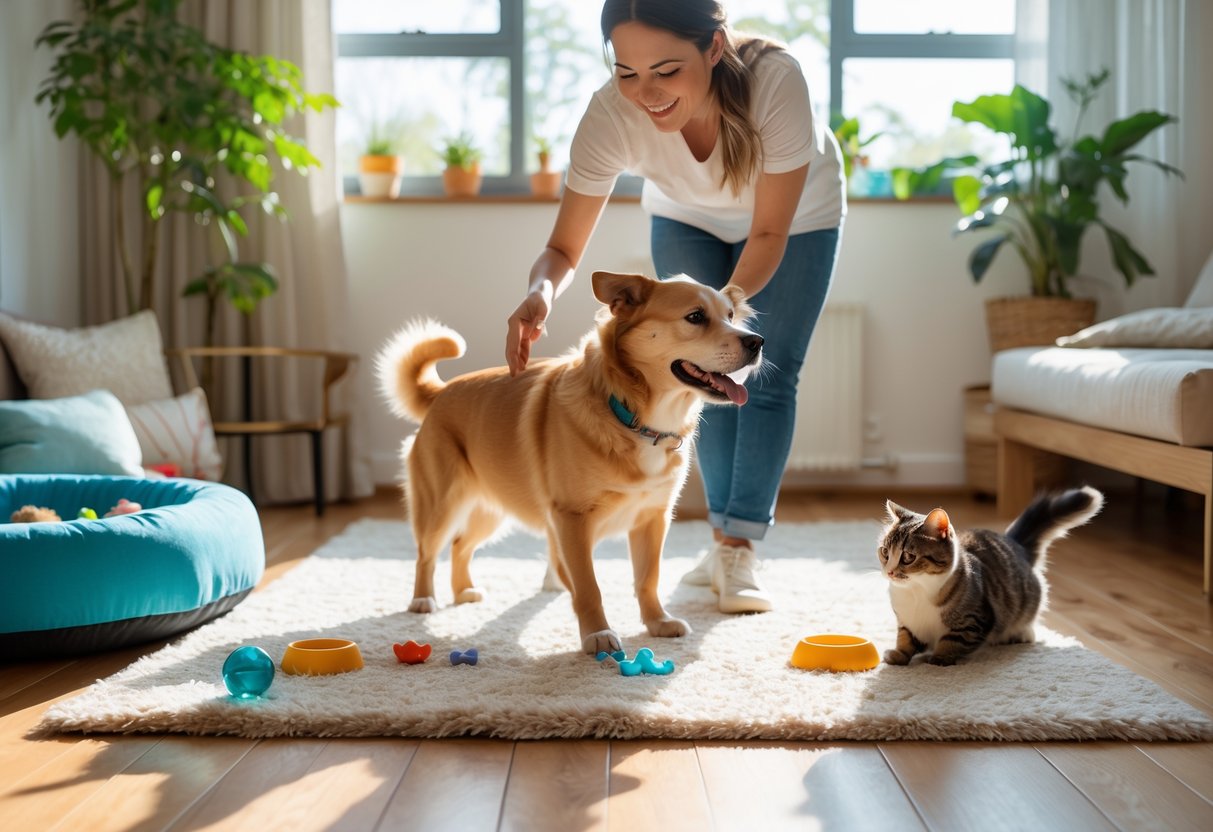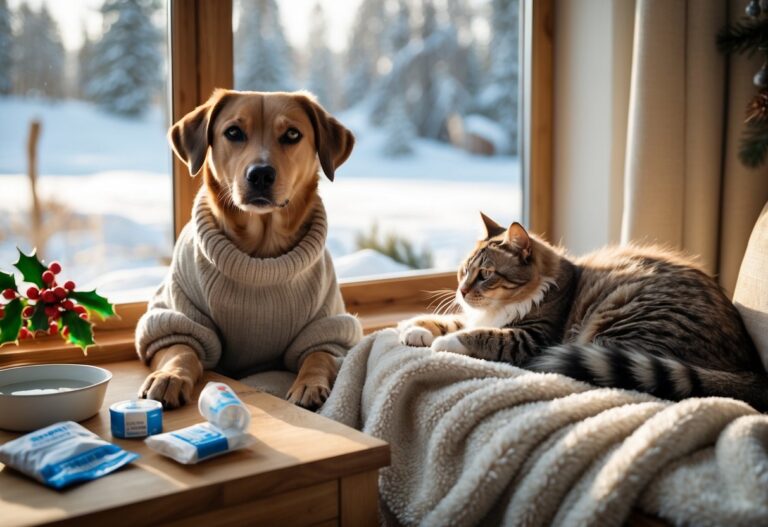Keeping your pet happy doesn’t have to be complicated or expensive. Simple daily habits like consistent care, regular play, and a steady routine can instantly boost your pet’s mood and well-being.
These actions help your pet feel safe and loved every day.

Your furry friend thrives on routine and attention, not just treats or toys. By making small, easy changes in how you care for your pet each day, you can strengthen your bond and improve their health and happiness.
This guide will show you seven habits that create a happier, healthier life for your pet right now.
7 Daily Habits That Instantly Boost Pet Happiness
You can improve your pet’s happiness by focusing on clear communication, steady routines, regular exercise, and mental challenges. These habits help dogs and cats feel safe, loved, and engaged every day.
Meaningful Communication and Positive Affirmation
Your pet responds well to gentle words and a consistent tone. Use calm, kind phrases when you talk to your dog or cat.
A soft voice paired with petting shows trust and care. Giving positive reinforcement, like praise or treats, encourages good behavior and builds your bond.
Skip the harsh corrections; instead, reward what you want to see. Daily moments of affection signal love in ways your pet understands.
This creates security and helps reduce stress or anxiety, especially in dogs who rely on tone and body language.
Consistent Routines for Comfort

Pets thrive on routine because it gives them a sense of security. Feeding, walking, and playtime at the same hours every day help your dog or cat feel safe.
Stick to predictable schedules for bathroom breaks and bedtime. This consistency lowers stress and helps prevent behavioral issues caused by uncertainty.
Familiar routines also make it easier for you to notice changes in your pet’s mood or health early on. It builds trust and helps your pet feel balanced throughout the day.
Interactive Physical Activity and Sniff Walks
Regular exercise is vital for pet happiness. Dogs, in particular, need daily walks that include time to sniff around.
Sniffing satisfies their natural curiosity and stimulates their brain. Play sessions using toys like balls or feather wands encourage movement and strengthen your bond.
Cats benefit from short bursts of activity to mimic hunting behavior. Physical activity helps maintain a healthy weight, reduces anxiety, and keeps muscles strong.
Aim for at least 20-30 minutes of active time daily for dogs, and several short play sessions for cats.
Mental Stimulation and Enrichment
Pets need mental challenges to stay sharp and happy. For dogs, puzzle feeders or training sessions provide focused thinking and reward.
Cats enjoy interactive toys and hiding treats in different spots to keep their brains active. New smells, sounds, and objects enrich their environment.
Regular mental engagement prevents boredom, which can lead to destructive chewing or scratching. It improves confidence and keeps your pet alert and interested in their surroundings.
Creating a Supportive and Enriching Environment

Your pet’s happiness depends a lot on the space and routine you create for them. Comfort, social time, and focused play are key to making pets feel safe, engaged, and loved every day.
Establishing Cozy Rest Spaces
Your pet needs a quiet, comfortable place to rest and feel secure. For dogs, choose a spot away from loud noises and heavy foot traffic.
Use a soft bed or blanket that fits your dog’s size. Cats prefer elevated or hidden spaces, like a cozy nook or a cat tree.
Make sure this area is clean and warm, with easy access to their food and water. You can use familiar toys or a piece of your clothing with your scent to give extra comfort.
A well-set rest area helps your pet relax and lowers stress.
Facilitating Socialization and Community Interaction
Regular social time is important for pets, especially dogs. Visit a dog park where your dog can meet and play with other dogs.
This helps them learn social skills and burn off energy. If your pet is shy or new to socializing, start slow.
Let your dog or cat meet new people and animals in a calm way. Positive, controlled interactions build confidence.
For cats, socialization can include visits from trusted friends or playdates with cats they know. A supportive environment includes more than just physical spaces—it includes healthy social bonds.
In the end, it’s the little things that add up. A few consistent habits, some attention, and a bit of patience go a long way toward making your pet’s day brighter—and yours, too.
Try weaving these habits into your routine and watch your pet’s happiness (and maybe even your own) grow. Isn’t that what having a pet is all about?
Prioritizing Focused Playtime Without Distractions
Playtime isn’t just a treat—it’s vital for your pet’s mental and physical health. Honestly, life gets busy, but carving out a little time each day for focused play (and ditching your phone or the TV) can make a world of difference.
Pick toys that actually grab your pet’s attention. Dogs might go wild for balls or a good tug-of-war, while cats usually can’t resist feathers or those sneaky laser pointers.
Interactive play gets your pet moving and, honestly, it’s a great way to build a stronger bond. Overdoing it, though? Not a great idea.
Short, regular play sessions keep your pet interested and help avoid stress. Creating a distraction-free space lets them really soak up the fun.
In the end, a little intentional play—without the usual distractions—can deepen your connection and keep your furry friend happier and healthier. Isn’t that what we all want?



[…] healthy daily routine covers balanced meals, exercise, hygiene, and creating a safe home. These basics support both body […]